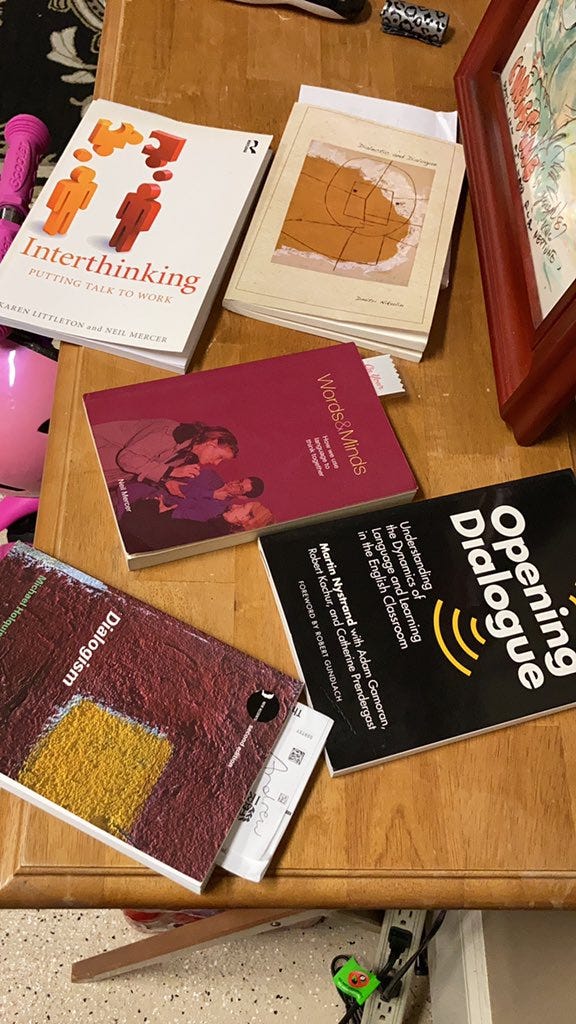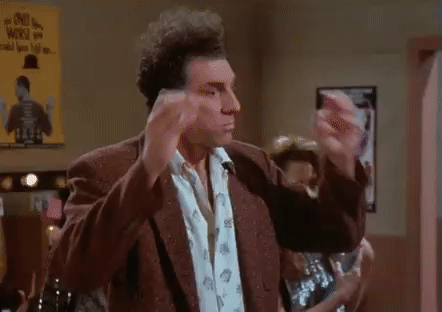Dialectic and Dialogue
Journey through the center of the discourse
As you may know, I've been working through a book by Dmitri Nikulin entitled "Dialectic and Dialogue." I wish I could tell you where I came across the title, but that's lost in the research shuffle at this point. When I began reading, I wasn't sure what to expect. I've done a bit of survey of philosophy, and I'm a fan of broad-strokes, Will Durant type big-picture scholarship (holla at the scholastics), so I wasn't too intimidated by the prospect of diving into some pretty obscure theoretical philosophy.
After a wild and obfuscated start with a lot of Greek terminology and esoteric early Western philosophy, the book and its claims have really started to illuminate some purposeful distinctions within the phenomenon of discourse. Whereas I'd had some muddled ideas about what is or isn't dialectic, or what is or isn't dialogue (I previously couldn't distinguish the two), Nikulin has helped me disentangle the two and re-evaluate my own conceptions of dialogue—especially post-Bakhtin.
So what have I learned? Well, first of all there was a 'duh' moment of re-approaching Socratic and Platonic dialogue, what I've reappraised as the core of Western philosophical thought and tradition. I know—obvious stuff. But intensive consideration of the Socratic method truly assists with conceptions of dialogue especially in contrast with dialectic. And these distinctions have real implications within teacher collaborative discourse.
Socratic dialogues, made into a 'literature' through Plato, explicitly involve interlocutors in a dramatic dialogue, typically attempting to define a word, idea or concept through questions and answers—maybe 'knowledge,' or 'piety,' or 'justice.' Nikulin does well to describe the historical trajectory of dialogue here at its literary impetus into what is now recognized as dialectic:
"As I have attempted to show so far, dialogical practices give birth to procedures that are first used and then codified, reflected on, and systematized as dialectical methods that are then understood either as a universal method or "tool," like the art of reasoning, or as the most valuable part of philosophy. Dialogue, therefore, is abandoned as philosophically unproductive, unsystematic, and utterly accidental to the process and acts of reasoning. Philosophical thinking thus conceives of itself as having "outgrown" confused and disoriented dialogue and having turned to monological, strict, and conclusion-oriented thinking. However, I now want to return to dialogue once again and, using some of the methods that initially grow out of it, provide a "dialectical" reconstruction of dialogue and examine the features that make dialogue philosophically and ontologically important."
This has helped me clarify the different quality and character of "dialectic" and "dialogue." Dialectic becomes the formal, logical, closed, conclusive and systematic practice of rational method; its project is to draw justified conclusions, develop clear answers and achieve a sense of finality. On the contrary, dialogue becomes the informal, illogical, open, inconclusive and unsystematic practice of irrationality; its project is its lack of a project: dialogue represents the unjustified, unclear, uncertain and unfinalized quality of personal, human experience—the ability to always say something else, or say things a little differently, or turn the conversation into a new and creative direction.

There are many ramifications of this theoretical conception to my work with teacher-facing discourse or teacher collaborative discourse. It's inspired a rethink of the purpose of collaborative meetings: Why is there an expectation of total rationality, data-oriented reasonability, protocol and method on lots of teacher collaboration? Does this not conflict with the natural need for illogical, emotional, sentimental, pathetic (in its old sense) dialogue that's unfinished, remaining open and unresolved? It inspires a rethink regarding the object or project of teacher collaboration, and the making of space for dialogue alongside dialectic. This conception helps me rethink the push and pull in educator conversation between a logical, dialectical formality and an illogical, dialogic informality. Both of these are needs of groups and must be navigated by facilitators and leaders. More thoughts on this forthcoming.



